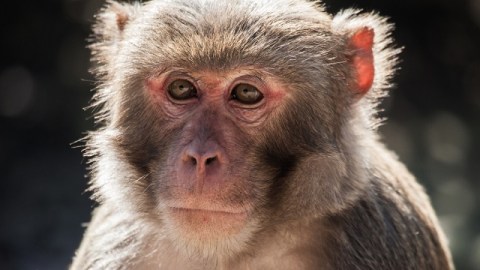While Chimp Experiments End, Monkey Experiments Continue

What’s the Latest Development?
Despite the National Institutes of Health’s recent announcement that it will retire most of its research chimpanzees, the use of monkeys — primarily rhesus macaques — is expected to continue for some time to come, despite their having many of the same emotional and cognitive traits that influenced the decision to scale back chimpanzee use. These traits include the ability to feel empathy and regret and an understanding of justice and fairness, among others. Most of the approximately 70,000 nonhuman primates used for research in the US are monkeys, with over 20,000 imported each year.
What’s the Big Idea?
Geneticist Vincent Lynch says monkeys solve “a biomedical Goldilocks problem”: They’re just different enough that scientists are comfortable doing experiments on them and just alike enough that the results can benefit human health. They are also useful for studying a wide range of diseases and conditions, and are easier to work with than chimpanzees. Humane Society of the United States official Kathleen Conlee says that if monkey research is to continue, “we have an obligation to address their welfare” by ensuring that facilities adhere to standards set in the federal Animal Welfare Act.
Photo Credit: Shutterstock.com





